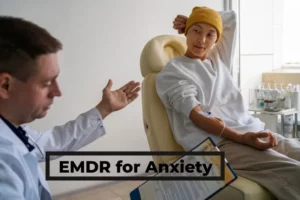Introduction
The terms’ speech’ and ‘language’ seem to have similar meanings but differ. This article will explain this difference and the variations between speech and language disorders[1] and their symptoms, causes, types, and treatments.
What are speech and language disorders?
Speech disorders
A speech disorder is any condition that limits a person from making sounds that form words.
There are many possible causes of speech disorders, including physical impairments, neurological conditions, and developmental delays. Some common causes of speech disorders include:
Cleft lip or palate
Hearing loss
Autism spectrum disorder
Developmental delays
Stroke
Apraxia
Dysarthria
Dysphonia
Language disorders
An individual with a language disorder will find it hard to understand others or express their thoughts and ideas using words. It may involve problems with using or understanding language at different levels, such as using the right word, proper grammar, or following directions.
There are broadly two categories of language disorders:
-
Receptive language disorder: A receptive language disorder involves difficulty understanding what others say.
-
Expressive language disorder: An expressive language disorder involves limitations in sharing feelings, thoughts, and ideas.
It is possible to have both a receptive and an expressive language problem.
There are many different causes of language disorders, including:
-
Hearing loss
-
Brain damage is due to certain neurological diseases such as Alzheimer’s, Parkinson’s, and dementia.
-
Genetic predisposition to developing a language disorder
-
Head injury or other trauma.
-
Result of exposure to drugs or alcohol in the womb
-
Complications during pregnancy and at birth
What are the symptoms of speech disorder vs language disorder?
Issues around the physical production of speech sounds or speech rhythm, fluency, and intonation indicate a speech disorder. Common symptoms of speech disorders include:
-
Stuttering
-
Sound distortions
-
Repetition of sounds
-
Prolongation of sounds
-
Omissions and substitutions of syllables or sounds in words
-
Speaking too softly.
Issues with the understanding and use of spoken or written language are indicative of a language disorder. Common symptoms of language disorders include:
-
Reduced vocabulary as compared to peers
-
Difficulties with grammar, such as using wrong tenses
-
Limited ability to use words in the correct order and put sentences together
-
Challenges in framing sentences and having conversations
Differences between speech disorders vs language disorders
There are some critical ways in which these two types of disorder differ[3]:
Speech disorders involve producing sounds, while language disorders include problems understanding or using words and sentences. Some people have both types of disorders.
Speech disorders are more visible because they affect how a person produces speech. It can make it difficult for others to understand what the person is saying. Language disorders, on the other hand, often involve more subtle difficulties with understanding or using words and sentences. It can make it harder for others to realise that there is a problem.
Another key difference is that speech disorders tend to be more variable, meaning they can come and go over time. It is often the case with childhood speech disorders, which may improve as the child matures. Language disorders are usually more persistent, meaning they tend to last longer.
Treatment of speech disorder vs language disorders
Establishing the proper diagnosis is crucial for an effective treatment plan. Speech-language pathologists (S.L.P.) are healthcare professionals who diagnose and treat speech and language disorders.
S.L.P.s diagnose speech and language disorders[2][4][5] with the help of hearing tests, physical examinations to rule out deformities or muscle weakness, and medical and family history. They may also perform special tests such as the Denver articulation screening examination, the Prosody-voice screening profile, or a Dynamic Evaluation of Motor Speech Skills (D.E.M.S.S.) to diagnose speech disorders.
Treatment for speech disorder may include:
-
Speech therapy: A speech therapist can teach people how to make speech sounds and improve their communication skills correctly.
-
Medication: Medications can help with speech disorders caused due to neurological issues. Anti-anxiety drugs are also sometimes helpful, as stress and anxiety can cause speech problems.
-
Surgery: Surgery can correct anatomical issues that are causing the disorder. For example, surgery can repair a cleft palate and remove growths or tumours causing a blockage in the individual’s airway.
Treatment for language disorders usually requires a collaborative effort from family members, teachers, and speech therapists. Listed below are a few tips that can help improve the symptoms of language disorder:
-
Give the child ample opportunity to practice using language.
-
Communicate slowly and clearly, and wait while they try to form sentences.
-
Share the issue of language disorder with the child’s teachers and request them to encourage the child to participate in activities involving talking and discussion. Prepare the child mentally for the same.
-
Maintain a relaxed and stress-free environment for the child
-
Family members and teachers to ensure the child is not teased or judged
Conclusion
Language and speech disorders can significantly impact an individual’s life. These disorders can make it difficult for them to communicate their thoughts and feelings, leading to social isolation and anxiety. In addition, language and speech disorders can also interfere with an individual’s ability to learn new information or skills.
Early intervention can make all the difference in terms of treatment outcomes. If you think you or someone you love has a speech or language disorder, it is essential to consult a speech-language pathologist for an evaluation. With early diagnosis and treatment, most people with speech or language disorders can improve their communication skills.
To consult an expert from the comfort of your home, contact United We Care. We are online mental health wellness and therapy platform offering professional guidance to combat your mental and emotional challenges. Contact us today!
References
[1] E. R. Allard and D. F. Williams, “Listeners’ perceptions of speech and language disorders,” J. Commun. Disord., vol. 41, no. 2, pp. 108–123, 2008.
[2] A. L. Gallagher and S. Chiat, “Evaluation of speech and language therapy interventions for pre-school children with specific language impairment: a comparison of outcomes following specialist intensive, nursery-based and no intervention,” Int. J. Lang. Commun. Disord., vol. 44, no. 5, pp. 616–638, 2009.
[3] H. M. Sharp and K. Hillenbrand, “Speech and language development and disorders in children,” Pediatr. Clin. North Am., vol. 55, no. 5, pp. 1159–73, viii, 2008.
[4] H. Limm and W. von Suchodoletz, “Perception of stress by mothers of children with language development disorders,” Prax. Kinderpsychol. Kinderpsychiatr., vol. 47, no. 8, pp. 541–551, 1998.
[5] I. Aras, R. Stevanović, S. Vlahović, S. Stevanović, B. Kolarić, and L. Kondić, “Health-related quality of life in parents of children with speech and hearing impairment,” Int. J. Pediatr. Otorhinolaryngol., vol. 78, no. 2, pp. 323–329, 2014.










